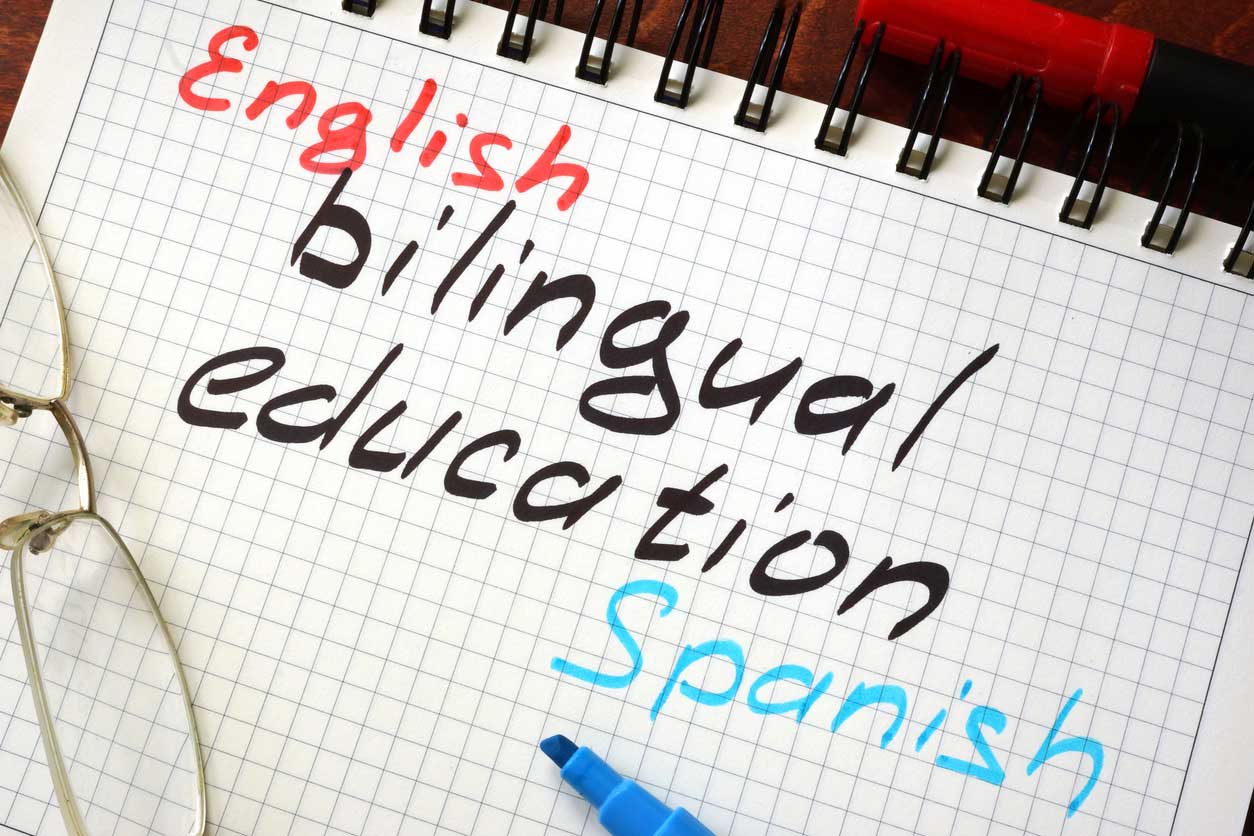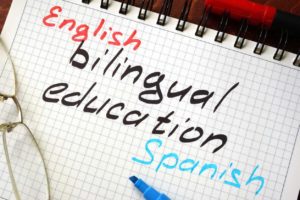

The ability to speak one or more languages has proven beneficial for people who work in a wide variety of industries, from serving food at a national casual themed restaurant chain to directing a multi-nation marketing plan for the sales of consumer products. Because of the demand for bilingual professionals, the American education system has incorporated beginner, intermediate, and advanced bilingual programs at all levels to prepare student for the real world.
However, there has also been a strong backlash against teaching students additional languages other than American English
Bilingual education is about the myriad issues that that are required to teach students how to read, speak, and understand verbal English. State and local government typically have trouble implementing bilingual education programs because of the lack of qualified teachers. The contention of many anti-bilingual education opponents is that bilingual language programs prevent English speaking students from sharpening their English spelling, grammar, and most important, vocabulary skills. Bilingual education opponents point to several studies that prove bilingual education is a deterrent for English speaking students to enhance their English skills.
The question is where does the law stand on the issue of bilingual education?
The hot button topic of bilingual education has morphed into one of the most controversial issues discussed in American politics. However, that has not always been the historical case. Throughout American history, a bilingual education prepared immigrant students to thrive in a multiple lingual workforce. At the turn of the 20th century, immigrant children from Italy, Germany, and Ireland received intensive bilingual educations to help them learn English. Bilingual educations have historically ensured students learned English well enough to succeed as adults. The recent flood of immigrants from Mexico, Central America, and South America has created a vocal opposition that English is official language of the United States. Yet, only a few states have made the designation, not the federal government.
School districts, with the political backing of state leaders, take one of two approaches to implement bilingual education programs. Some school districts offer pure bilingual education programs, while other school districts offer English as a Second Language (ESL). It is ESL that receives the most flack from bilingual education opponents. Bilingual education programs frequently include a mix of native English and non-English speakers. Instruction in pure bilingual education classes teaches subjects in both English and a secondary language, which in the United States is usually Spanish. A different version of true bilingual education encourages students to master the English language. On the other hand, ESL programs emphasize the non-native student’s first language, with English taught in a structured pull-out program. These programs require non-English speaking students to spend time out of regular class in a different class where lessons are delivered in their native language.
The Internet has opened up access to federal bilingual grant and program information. The United States Department of Education operate an agency called the office of Bilingual Education and Minority Language Affairs (OBEMLA). OBEMLA oversees the awarding of Title VII grants to state and municipal education agencies that managed bilingual education initiatives. The National Clearinghouse for Bilingual Education (NCBE) represents one of the best resources for parents to learn more about bilingual education programs in the United States.
Every state in the country offers some type of bilingual or ESL education. States such as Texas, Florida, and California that have the highest concentration of immigrants create and manage the most comprehensive bilingual education programs. To learn more about how your state deals with bilingual education, consult with a licensed attorney that specializes in education law.